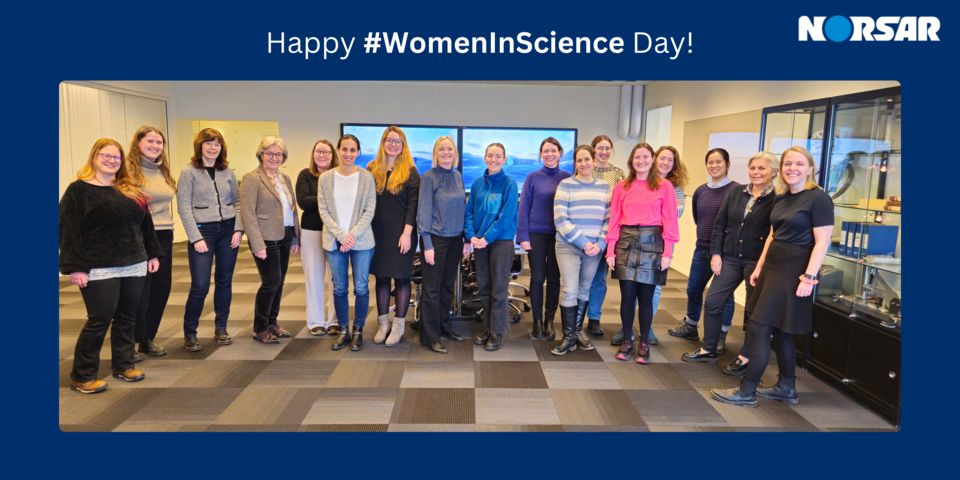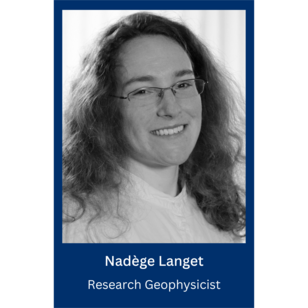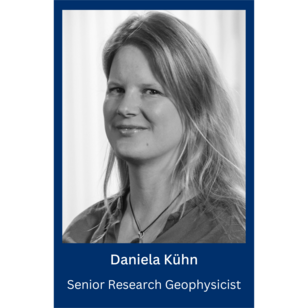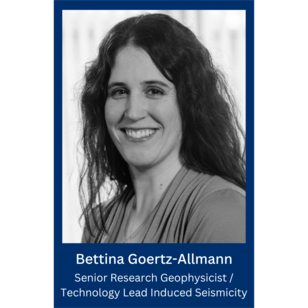NORSAR Celebrates Women and Girls in Science

In 2024, despite progress, women are still underrepresented in the fields of science and technology. This International Day of Women and Girls in Science, we celebrate our female researchers at NORSAR!
The International Day of Women and Girls in Science is annually on February 11th and is dedicated to encouraging more women and girls to pursue careers in science. In STEM fields – science, technology, engineering, and mathematics – have gender barriers and social norms historically limited their participation. Efforts to close the gender gap in science are essential for ensuring diversity and unlocking the full potential of scientific innovation.
At NORSAR, we recognize the importance of fostering an inclusive work environment, not only as a competitive advantage but also as a success criterion for recruitment, well-being, and outstanding results. We are proud to have a strong representation of women at NORSAR!
For the occasion, we have interviewed some of our female researchers, delving into their experiences and career choices as #WomenInScience. As we celebrate their accomplishments today, we also reaffirm our commitment to empowering and supporting women in their pursuit of excellence in science and technology.

Can you introduce your work at NORSAR?
I work as a research geophysicist in the applied seismology group. My work mainly consists in processing microseismic data in different application fields (more industry-related, such as Carbon Capture and storage and geothermal energy, or more environmental research, such as rock-slope monitoring).
What did you study, and what inspired you to pursue this field?
I first studied geophysics and then specialized in seismology during my PhD. I have always had a broad interest in science, and as a person who likes nature and the outdoors, I came to geophysics because of the “geo”.
What advice would you give to other girls and women considering a career in science?
Find a work environment that allows you to grow and build skills at your pace. You don’t need to be a genius to be a scientist, the strength of a team lies in its diversity, so there is definitely a place for women willing to contribute to science in a way.

Can you introduce your work at NORSAR?
I am a senior research geophysicist in the Applied Seismology group. I started my job at NORSAR in 2007. From the beginning, I was working on analyzing microseismicity – tiny earthquakes – occurring often in connection with human activities underground, such as mining, hydrocarbon and geothermal exploration or impoundment of dams. I mainly,analyze the source mechanisms of such events, which gives indications on subsurface processes and also can be interpreted to derive information on the stress field, which otherwise is difficult to obtain. Related to this, I often need to forward model waveforms from earthquake sources to receivers.
I also enjoy leading projects and work packages, especially including many participants from different institutes and countries, since I love integrating the different puzzle pieces to form a bigger picture – and in addition, you usually get to know a lot of competent researchers that also are very nice people forming a “research family” for the duration of the project.
What did you study, and what inspired you to pursue this field?
I studied geophysics at the University of Münster (Germany), followed by a doctoral thesis at the University of Hamburg modelling the ascent of dykes at mid-ocean ridges - starting only to work on seismology during my first postdoc contract. After school, I found it rather difficult to choose a subject, since I was interested in so many areas, not only natural sciences, but also languages and teaching, for example (becoming a teacher at a school for the blind or a journalist were also very high up on my list).
In fact, I made my decision after visiting an open house at the Technical University of Berlin to study geoengineering. That was a brand-new subject at that time and also very multifaceted, combining different topics such as geology, mineralogy, deposits and engineering, but after one year, I decided that the subject was too broad, and I’d rather pick one of the topics to study in more depth. Geophysics was the one that was most interesting and challenging. So, my study path wasn’t quite straight, but involved some narrowing down of the topic.
What advice would you give to other girls and women considering a career in science?
Study the topic you are really interested in. Especially in science where you target the yet unknown instead of following well-known pathways, it sometimes may feel as if you are stumbling from one hurdle to the next, having to solve a myriad of smaller problems to contribute to a bigger solution. However, if the topic is close to your heart, this feels more like detective work instead of being frustrating. There is nothing like the moment you finally reach a new insight.
Geosciences are becoming more and more important, being able to contribute to the big challenges of our time – especially climate change and natural hazards. It is incredibly fulfilling to have a job that is contributing to much-needed solutions and being of value for our society (which of course is true also for other sciences in other ways).
Despite equality not having been fully reached even in West European countries, being a female in science has become easier during the last decades. Especially (but not only) within younger males, the mindset changed noticeably that females can contribute equally well to scientific discoveries.

Can you introduce your work at NORSAR?
I work in the applied seismology department at NORSAR as a senior researcher and I am the technology lead of induced seismicity. These days I focus my research on microseismic monitoring of Carbon Capture and Storage and geothermal applications. I am interested in better understanding the connection between fluid injection operations and the link to induced seismicity.
What did you study, and what inspired you to pursue this field?
I studied Geophysics at Karlsruhe University in Germany and at the University of California San Diego with a focus on seismology. My largest inspiration was my older brother who also studied geophysics and my general interest in geoscience. I first started my career path towards becoming a professional dancer but then completely changed directions pursuing a career in science instead.
What advice would you give to other girls and women considering a career in science?
My main advice would be to follow your interests and choose a field within science that can keep you motivated. Believe in yourself and your own abilities. There are many different career path opportunities in science including academia, research institutes, and industry and it is important to choose a path that is best aligned with your interests and goals.